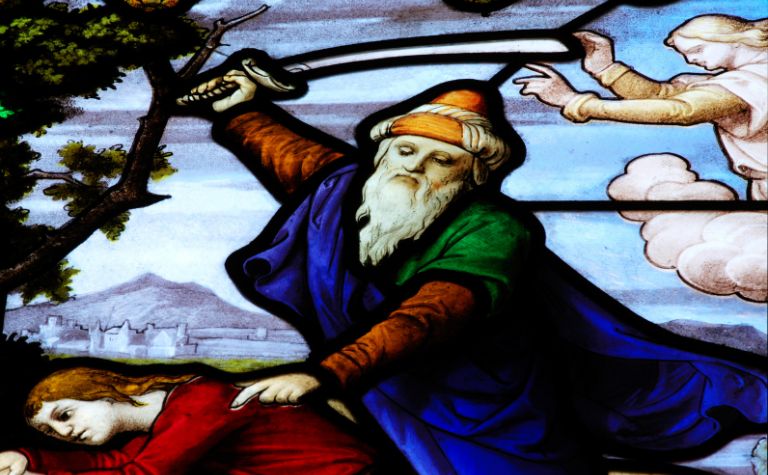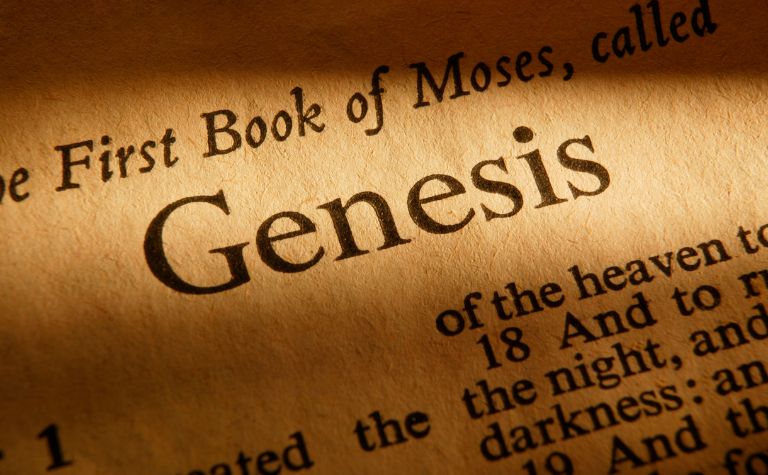God’s lifelong faithfulness to Abraham was anchored in his promises to the patriarch. God declared his covenant with Abraham when he called him to leave Haran for the Promised Land. Even when circumstances threatened the promises, including Abraham’s poor choices, God kept his promises.
God promised to give Abraham land for him and his descendants, to grow them into a nation, and to bless his descendants and others in the world through them. Also called the Abrahamic Covenant, God’s promises to the patriarch are unilateral, i.e., their fulfillment depends on God alone.
How old was Abraham when God made him these promises? What loss was Abraham experiencing when God came to him? Where was the Promised Land? How did Sarah’s physical trial threaten God’s promise of descendants? What son of Abraham inherited the promises? Keep reading to learn the answers to these questions and others.
Also, getting insight into Abraham’s lifetime is important to understand Genesis. Discover how old Abraham was when he died to learn more.

God Promised Abraham Land
When God made promises to Abraham, the patriarch was living in Haran, in northern Mesopotamia. He had previously left the region of his upbringing, Ur of the Chaldeans, with his wife Sarah, his father, Terah, and other family members, including his nephew, Lot.
The family left Ur for Canaan, the Promised Land, but their journey halted when Terah died in Haran (Gen. 11:31-32). This is when God came to Abraham and said, “Go from your country and your kindred and your father’s house to the land that I will show you” (Gen. 12:1, ESV).
The patriarch obeyed. At the age of 75, Abraham moved his family to Canaan. People, called the Canaanites, lived there at the time. Nevertheless, God said, “To your offspring I will give this land” (Gen. 12:7).
Also, many readers of Genesis are familiar with Isaac but not Abraham’s other children. Learn how many sons Abraham had to get more understanding.

God Promised Abraham He Would Have Descendants
Next, God said Abraham’s descendants would become so numerous they would become a nation. He said, “I will make of you a great nation” (Gen. 12:2a). The Hebrew word translated as “great” (gadol, גָּדוֹל) doesn’t necessarily refer to importance (though Israel would be that), but the size of their population.
Sarah is barren
Abraham is the main character in Genesis 11:10-25:11. The Bible mentions him several times outside this section; however, those references are to his narrative in this section.
One of the tensions in Abraham’s story is that his wife, Sarah, cannot have children. How would God fulfill his promise to Abraham for descendants if his wife is barren?
This trying circumstance confused the patriarch and caused him and Sarah great sorrow. Abraham asked God about this multiple times. For example, he said, “O Lord God, what will you give me, for I continue childless” and “behold, you have given me no offspring” (Gen. 15:2-3).
God responded, saying Abraham’s descendants would be as numerous as the stars in the sky. “Look toward heaven, and number the stars, if you are able to number them. So shall your offspring be.” Then Genesis reports that Abraham trusted what God said (Gen. 15:5-6).
In another passage, he says they would be as numerous as the sand. “I will surely bless you, and I will surely multiply your offspring as the stars of heaven and as the sand that is on the seashore. And your offspring shall possess the gate of his enemies” (Gen. 22:17).
More decades pass without children
Abraham is 75 years old when he leaves Haran for the Promised Land with his family. Yet, it’s not until he’s 99 that God starts to fulfill his promise to him (Gen. 17:1). Despite Abraham and Sarah’s old age, God emphasizes that they will have children together.
| Genesis 17:1b-2 | Walk before me, and be blameless, that I may make my covenant between me and you, and may multiply you greatly |
| Genesis 17:4 | Behold, my covenant is with you, and you shall be the father of a multitude of nations |
| Genesis 17:5 | I have made you the father of a multitude of nations |
| Genesis 17:6 | I will make you exceedingly fruitful, and I will make you into nations |
| Genesis 17:7 | And I will establish my covenant between me and you and your offspring after you throughout their generations for an everlasting covenant, to be God to you and to your offspring after you |
| Genesis 17:8 | And I will give to you and to your offspring after you the land of your sojournings, all the land of Canaan, for an everlasting possession, and I will be their God |
Isaac is born
Abraham had a son, Ishmael, with Sarah’s servant, Hagar (Gen. 16). He also had six sons with his second wife, Keturah (Gen. 25:1-6). But his son with Sarah, Isaac, was the promised child who would inherit the promises God gave Abraham.
Genesis 21:1-3, “The Lord visited Sarah as he had said, and the Lord did to Sarah as he had promised. And Sarah conceived and bore Abraham a son in his old age at the time of which God had spoken to him. Abraham called the name of his son who was born to him, whom Sarah bore him, Isaac.”
Circumcision would be the sign of the covenant
Circumcision, the removal of the foreskin from the penis, was the physical sign of the covenant that God required for all Jewish males. The sign likely reminded Israelites that their children and the future of their people weren’t merely the result of biological processes but God sovereignly fulfilling his promises.
God said, “This is my covenant, which you shall keep, between me and you and your offspring after you: Every male among you shall be circumcised. You shall be circumcised in the flesh of your foreskins, and it shall be a sign of the covenant between me and you” (Gen. 17:10-11).
Also, names in the Bible often carry special meanings. Learn what the name Abraham means to gain insight into one of Genesis’ main characters.

God Promised to Bless Abraham
Observant Bible readers can see that a form of the word “bless” occurs five times in one and a half verses in the passage that records God’s promises to Abraham (Gen. 12:1-3). The origin of the blessing is ultimately God, made clear in the phrase “I will,” yet he would use Israel as his instrument as well.
| Genesis 12:2a | I will bless you |
| Genesis 12:2b | you will be a blessing |
| Genesis 12:3a | I will bless |
| Genesis 12:3b | those who bless you |
| Genesis 12:3c | in you all the families of the earth shall be blessed |
Genesis commentator John Hartley explains, “Blessing, which corresponds to the English word ‘success,’ encompasses the well-being of a person or a people: good health, long life, numerous offspring, fertile flocks, harmony within the clan, and freedom from oppression.” [1]
God would bless the Israelites
God chose to bless Abraham’s descendants not only for their wellness but for other people groups. He said, “I will bless you and make your name great, so that you will be a blessing” (Gen. 12:2b).
God’s promise of blessing wasn’t just for the Israelites but for other people groups, too. Therefore, Israel wasn’t to become prideful or self-centered. God hadn’t chosen them at the expense of all other people. Instead, he chose them to reach others like missionaries.
God would bless or curse non-Israelites
As part of his protection of Abraham’s descendants, God also promised to show favor to people groups that bless Israel and disfavor to those that don’t. Genesis 12:3 reads, “I will bless those who bless you, and him who dishonors you I will curse, and in you all the families of the earth shall be blessed.”
The Apostle Peter cites Genesis 12:3 when he preaches the gospel of Jesus Christ to Jews: “You are the sons of the prophets and of the covenant that God made with your fathers, saying to Abraham, ‘And in your offspring shall all the families of the earth be blessed'” (Acts 3:25).
The Apostle Paul cites Genesis 12:3 when he teaches that God’s blessing has extended to Gentiles through Jesus: “And the Scripture, foreseeing that God would justify the Gentiles by faith, preached the gospel beforehand to Abraham, saying, “In you shall all the nations be blessed” (Gal. 3:8).
Genesis commentator Richard Belcher writes, “In this way the blessing of Abraham has come to the nations through Jesus Christ and is available to all who believe in Jesus.” [2]
Also, as Abraham’s son, Isaac is an important figure in Genesis. Learn why God asked Abraham is sacrifice his son to get more insight.
References:
[1] Genesis by John Hartley. NIBC. p. 132-133.
[2] Genesis by Richard Belcher. FOB. p. 114.
Related Questions
The story of Noah, the flood, and the ark is one of the most iconic narratives in the Bible. Not only does the magnitude of the floodwaters leave readers awe-struck, but so does the faith that Noah...
Adam and Eve are the first humans God created. Readers know the pair as the first man and woman, and as the first people to rebel against God, which they did in the Garden of Eden. Did Adam and Eve...
